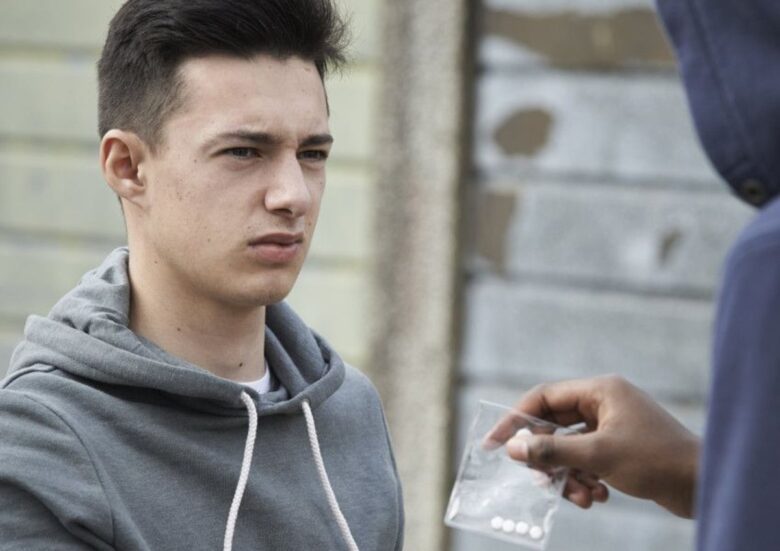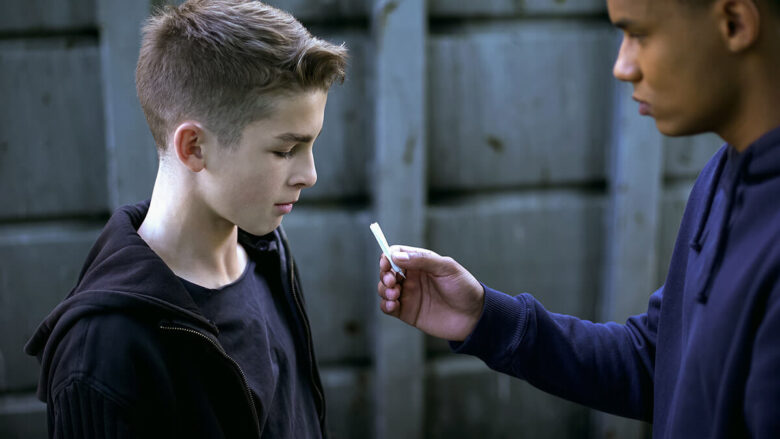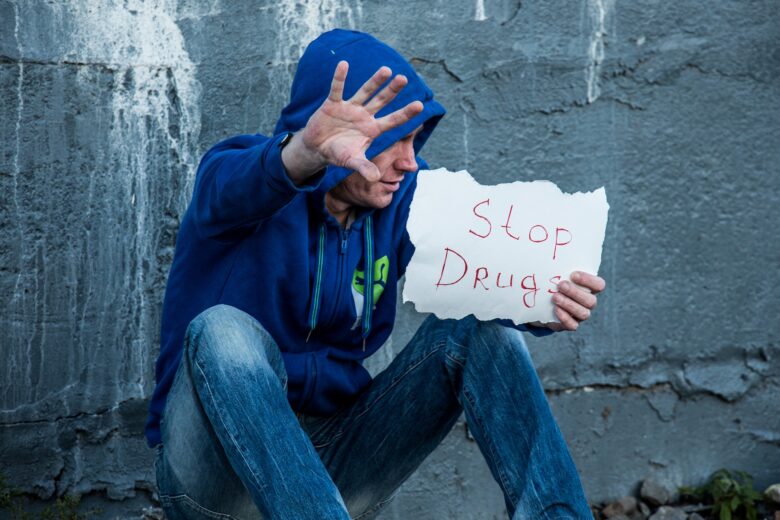Drug addiction is a frightening problem that affects millions of people every year.
Unfortunately, teenagers are particularly susceptible to drug abuse and addiction because they’re in a stage of life where they seek out new experiences and want to fit in with their peers.
If you don’t educate your child about the dangers of drug abuse, they could end up making some very bad decisions that will have lasting consequences. This article will explain what you need to know about educating your teenage children on the dangers of drug addiction so they can avoid falling into this trap themselves.
Contents
- The horrors of drug addiction
- Teenagers have a natural curiosity for experimentation
- The dangers of drug abuse
- Educate your child about the consequences of drug addiction
- Establish clear-cut boundaries for your children
- Show your love and concern for your children
- Talking about drug addiction to your children is never easy, but it can be immensely helpful.
- Conclusion
The horrors of drug addiction

Source: npr.org
Drug addiction is a serious problem that can lead to death, financial ruin, family breakdown, and continued and worsening mental illness. Your children need to know the facts so they can avoid becoming victims of this epidemic.
You should be aware of the following facts:
- Drug addiction is a chronic disease with genetic and environmental causes. It affects brain circuits involved in reward, motivation, and memory. People who develop drug problems often have lower levels of dopamine or other neurotransmitters in the brain than those who don’t experience these issues.
- If a person takes drugs for an extended period of time, it’s common for them to become addicted; this means their bodies will begin to crave the drug as soon as it leaves their system—even if they’ve been using it only once or twice each day! In fact, long-term use has been known to cause changes in areas like the hypothalamus (which regulates sleep), prefrontal cortex (which controls judgment), striatum (which controls movement and reward), and limbic system (which regulates mood). The result may be compulsive cravings even after withdrawal symptoms have passed away—meaning users are always looking for ways around detoxing themselves off their favorite substances!
Teenagers have a natural curiosity for experimentation

Source: scotsman.com
Teenagers have a natural curiosity toward experimentation. They want to know what it feels like to try out new things and experiment with their bodies. This is a common trait among teenagers, and it’s normal for them to want to do this until they are older. However, when you combine this desire for experimentation with other factors such as peer pressure and social acceptance, the likelihood of your teenager becoming addicted increases significantly.
Teens are more likely than adults (90% compared with 60%) to try marijuana before turning 18 years old according to the National Institute on Drug Abuse (NIDA).
Additionally, teens who use drugs at an early age will start developing serious problems such as dependence or addiction earlier in life too potentially leading to harder drugs!
So, keep this in mind when educating your teen about drug addiction because if he or she does start using drugs now there’s no telling how bad things could get later down the road!
The dangers of drug abuse

Source: destinationsforteens.com
There are many problems that can arise from drug abuse. Here are some:
- The long-term effects of drug abuse include addiction, brain damage, heart problems, and stroke.
- Short-term effects of drug abuse include difficulty breathing, nausea, and vomiting.
- Social effects of drug abuse include becoming withdrawn from family and friends as well as having trouble at school or work due to absences or poor performance caused by substance use disorder (SUD).
- Physical effects of drug abuse can include personality changes; changes in sleeping patterns; loss of appetite; tremors; headaches; mood swings like irritability/depression/anxiety/agitation or paranoia (feeling afraid).
Educate your child about the consequences of drug addiction
It is important to educate your child that drug addiction is not a choice, but rather a serious problem. It can lead to physical health issues, legal problems, and financial problems.
Considering talking with your teen about these topics:
- Their views on drugs: avoid lectures, just listen.
- Reasons not to use: how would they affect their favorite things
- Media Messages: what have they seen?
- Peer pressure: start early on boosting their confidence to avoid peer pressure
- Discuss if you used drugs
Establish clear-cut boundaries for your children

Establish clear-cut rules for your children. It is important that you establish clear-cut rules and boundaries for your children. Your children should know exactly what is acceptable and what is not acceptable in the home, at school, or outside of the house.
Show your love and concern for your children
Be involved in their lives.
You should also show your children that you are willing to help them with any problems that they may be having, whether it’s drug addiction or any other problem.
If you show these things, then when it comes time for your child to talk about their problems, they will see that as an opportunity for communication instead of a lecture from mommy or daddy.
You can even go as far as saying something like “I know this isn’t easy for you, but I am here for whatever advice or help I can give.” This lets the person know that although their situation may not be easy, there is still hope in resolving the issue at hand by working together with both parents involved in different ways depending on each individual case scenario
Talking about drug addiction to your children is never easy, but it can be immensely helpful.

Source: addictionhope.com
Talking about drug addiction to your children is never easy, but it can be immensely helpful.
Drug addiction can be a very scary subject for parents, especially when you have young children in the house. If you think your child might be addicted to drugs, contact a rehab center like AscendantNY today and speak to professionals for help.
Conclusion
Hopefully, you can find some of these tips helpful in the fight against drug addiction.
Just remember that it’s always better to be safe than sorry and try not to get too frustrated when talking with your children about drugs because they may not understand everything at first.
Establishing a supportive relationship with your children is the first step in combating teen addiction. If your teen feels they can talk to you, you’re already on a great path.
